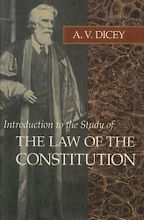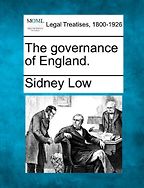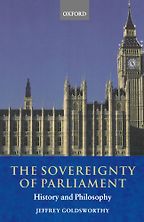First of all, do you think the AV referendum in Britain on May 5 is as big a deal in the popular mind as it should be? Has the media been giving it the attention it deserves?
The media are probably giving it more attention than the public wish. I fear that the campaign is a turn-off for the public, largely because the choices in the referendum have been pre-cooked by the coalition. Most of those who favour electoral change want to see some sort of proportional representation. But that is not on the ballot paper. People cannot understand why this particular proposal is being presented, or what real difference the alternative vote would make. People see it as a politicians' referendum, rather than a popular one.
So will it be more interesting in terms of the effect it has on the coalition than in terms of its actual result?
Yes, the political consequences could be very great, whatever the outcome. The only other national referendum we have ever had, in 1975 – on whether we should stay in the European Community, as the European Union was then called – had major political consequences. The failure of the devolution referendums in 1979 led to the end of the Labour government, and the beginning of 18 years of Conservative rule. The consequences could be almost as great this time.
Let's talk about the first book you've chosen: A V Dicey's Introduction to the Study of the Law of the Constitution.
This is a great classic work, more talked about than read I suspect. Unlike many classics, it is beautifully written and very clear. Although written so long ago (1885), it analyses what one might call the conceptual underpinnings of our unwritten constitution, and therefore remains relevant today. It has often been attacked but never fully superseded, and the arguments in it, particularly the argument about the sovereignty of Parliament, remain very much alive.
Dicey himself was opposed to proportional representation – is that right?
Yes, and he was also opposed to women's suffrage. But he was in favour of referendums. In the eighth edition of his book, the last to appear in his lifetime (in 1915), he argued strongly for the referendum as a check on the arrogance of party politicians. That is also of some relevance today.
Your next choice is The Governance of England, by Sir Sidney Low.
Yes. In contrast to Dicey, Low’s book has been completely forgotten. But it too is beautifully written. It is a kind of sequel to Bagehot's The English Constitution, which is much better known. But I think that it is in some ways even better written than Bagehot’s book. It is particularly fascinating because many of the things we talk about now, such as the excessive power of the Prime Minister and the weakness of the House of Commons, also seemed true in 1904, when The Governance of England was written. These are not new problems, and there probably never was a golden age of parliamentary government. Low asks – if you were to abolish the House of Commons tomorrow, who would notice? He also says that the Prime Minister has much greater power than people imagine, powers sometimes near to those of a dictator. He said that not in 2004 but in 1904!
This book provides a historical perspective, which is always valuable. People sometimes talk as if the problems of government are today's problems or yesterday's problems – often they are very old problems. It is a beautifully written book.
Next is David Butler's The Electoral System in Britain Since 1918.
David Butler was my mentor at Oxford. He has long since retired, but I have learnt a lot from him. One simple but important lesson was never to argue about ascertainable facts. If I say that there is a book in the next room, and you say that there is not, there's no point arguing – let us look! Butler is a great empiricist: he actually looked at how the electoral system worked. This is a factual book, but it ruins many wild generalisations about the electoral system.
You started by asking me about the AV referendum. In the referendum debate, there have been wild generalisations on both sides. People do not really know how the alternative vote actually works, for example, in Australia. This book pours a glass of cold water on generalisations about elections and electoral systems. It is a painstaking work, which I greatly admire. A dose of empiricism would, I believe, cure many of the ills of the world.
You mentioned “wild generalisations”. What do you think is the biggest general misconception about AV?
I think there are big misconceptions on both sides. The 'Nos' are absurd to say that AV gives some people two or even three votes. If I ask you to buy me a Mars, unless the shop has run out of Mars, in which case I would like a Twix, I get one bar of chocolate not two. A transferred vote is not a multiple vote. The 'Yeses' are absurd to say that AV would end the scandal of the safe seat. By definition, in a safe seat, the winner must gain 50% of the vote, so AV would not make the slightest difference.
Do you think the campaign to educate the public before the referendum has failed?
Of course, a referendum is not an academic seminar. Party political interests are involved. The actual change in representation with the alternative vote would probably be quite small, but no one wants to say that – they have to exaggerate and say the other side is mimicking Goebbels or telling lies.
I wrote an article in the Guardian last week saying that the public are not interested in this issue, and that it is a politicians’ issue. There are members of the public who favour electoral change, but they tend to favour proportional representation.
Do you worry about turnout?
Yes – turnout will be very low, particularly in London where there are no local elections. Turnout for the 1998 referendum on whether London should have a mayor was only 34%, even though it had been said that Londoners were furious at their lack of proper representation. With no local elections and little popular interest, turnout in London is likely to be very low indeed on May 5.
Your fourth choice is Enid Lakeman's How Democracies Vote.
This is a campaigning work in favour of proportional representation. It is highly detailed and knowledgeable. I knew Enid Lakeman – she is no longer alive – and although she was an indefatigable campaigner, she was scrupulous in her attention to fact and knew a tremendous amount about electoral systems in different countries. She was very deeply informed. So if you want to know, for example, how the electoral system works in Sweden, this is the book you must read.
I notice this was the only female author you chose. Is it rare to have a woman writing in this field?
I hadn't thought of that! Enid Lakeman in fact came from a suffragette family. She was not an academic. It is indeed the case that there are many fewer women academics than there are men. But that may be subject to generational change, for these days girls do better than boys in school. And academic life is being made more woman-friendly: the hours can be fairly flexible, and in some subjects you can do your work at home if you have to look after babies or young children. But as in other fields of life, women perhaps get a raw deal.
Back to AV: what, if anything, do you think is its greatest weakness?
The great strength of AV is that it gives you a wider choice. In the current first-past-the-post system, you often have to vote tactically. For example, you may be a Green but fear that if you vote Green, you're letting a party you don't like win – say the Conservatives – so you vote Labour instead. But with the alternative vote, you don't have to do that: you can vote Green, because if the Greens have no chance of winning then your vote is transferred.
The main argument against AV is that it can lead to more disproportional – and therefore unfair – results than first-past-the-post. For example, in 1997 it would have given Tony Blair an even larger majority than the majority of 167 that he actually got. AV can, under certain circumstances, amplify the swing. That is the main argument against it.
But it's not likely to change anything in a safe seat.
No – if a candidate has won over 50% of the vote in a constituency, nothing will change. Admittedly two-thirds of the seats at the last election were won on a minority vote, but even so, the only simulation we have of the last election, by David Sanders of Essex, shows that only 32 seats would have changed hands, and they would all have gone to the Liberal Democrats (because they are most people's second choice). The second candidate has to be very close to the first for AV to make a difference.
In Australia, fewer than 10% of candidates who were not top on first preferences ever win a seat – usually the figure is around 4% or 5%. And in Australia, one has to list all one’s preferences for one’s vote to be valid. In Britain, listing preferences will be voluntary. Experience in some of the Australian states where listing preferences is voluntary shows that a large number of people don't list preferences – therefore AV could make very little difference.
Your final choice is Jeffrey Goldsworthy's Sovereignty of Parliament.
This is a book defending A V Dicey’s central argument concerning the sovereignty of Parliament – an argument that comes up in all sorts of constitutional contexts, for example in the government’s European Union Bill. This bill has a declaratory clause in it saying that Parliament is sovereign. The question of whether Parliament is sovereign is crucial in debates about the European Union. I personally believe that parliamentary sovereignty was undermined when we went into the European Community in 1973, but there are strong arguments on the other side.
Finally, if you could recommend one book for people who don't know much about electoral reform to read in light of the AV referendum, what would it be?
Good question. Probably David Butler's book, The Electoral System in Britain Since 1918. It might be hard going for a beginner but it does give you the facts. There are a number of polemical books that have appeared recently, but frankly, they are not very good. If I am allowed to mention my own work, perhaps I could add that I published a book a couple of weeks ago called The Coalition and the Constitution, and it has a chapter on the alternative vote. It is not intended as a technical work, but as a book that any member of the general public can read and understand.
Interview by Emma Mustich
May 4, 2011. Updated: July 28, 2016
Five Books aims to keep its book recommendations and interviews up to date. If you are the interviewee and would like to update your choice of books (or even just what you say about them) please email us at [email protected]
Five Books interviews are expensive to produce. If you've enjoyed this interview, please support us by donating a small amount.










